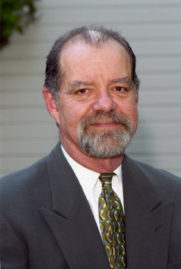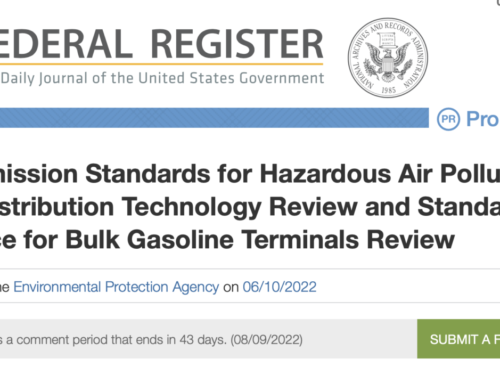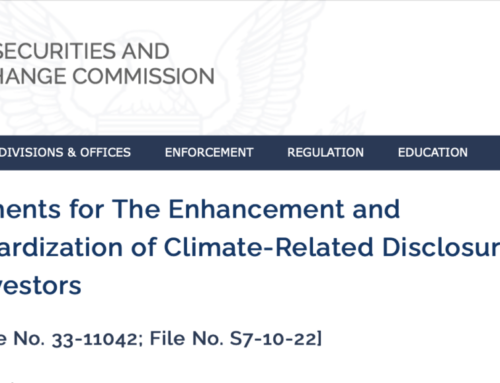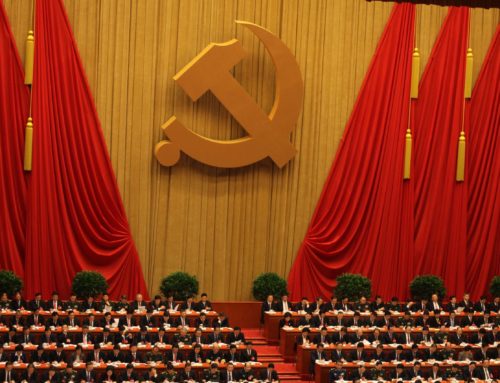For Immediate Release:
July 24, 2014
Contact:
Craig Richardson
[email protected]
E&E Legal’s Tom Tanton to Testify Before U.S. House Subcommittee on Energy and Power Hearing on the Economic Impacts of State and Federal Energy Policies
Washington, D.C. – Today, Tom Tanton, Director of Science and Technology Assessment for the Energy & Environment Legal Institute (E&E Legal), will testify at 10:00 a.m. before the U.S. House Energy & Commerce Subcommittee on Energy and Power at their hearing titled, “Laboratories of Democracy: The Economic Impacts of State Energy Policies.”
According to a Subcommittee press release, “the hearing will examine the economic effects of state energy policies as well as the impact of federal polices on states. Energy production is the primary factor driving growth in states with the fastest-growing economies where favorable polices have contributed to this success. On the contrary, states that have blocked energy development continue to struggle. Members and witnesses will explore which polices are creating economic growth and are benefiting the greatest number of people within a state.”
In his testimony, Tanton, a 40-year veteran of direct and responsible experience in energy technology and legislative interface, made the following key points:
- The economic impacts of State energy policy are quite large, with costs generally being larger than benefits, when indirect costs and externalities are included.
- The economic impacts cannot be attributable entirely to “laboratories of democracy” for the simple reason they often are adopted or evolve outside of democratic mechanisms:
- Due to mission creep and/or lack of legislative oversight
- Costs and burdens may be imposed on residents in neighboring states, creating unconstitutional extraterritoriality, such as with Renewable Portfolio Standards
- Costs are often ‘hidden’ from consumers, such as the cross subsidy inherent in many Net Metering Programs and the ‘tax’ imposed through cap and trade mechanisms
- Misinformation taken at face value by citizens that is disseminated by rent seekers and bureaucratic advocates, such as the cost of certain technologies
- Using states to test policy approaches and mechanism results in smaller negative impacts overall and easier-to-correct standards and regulations
- Each state has different needs, opportunity and challenges, and may benefit from lessons learned in earlier attempts in other states (both positive and negative.) It is unlikely that what works efficiently or effectively in one state is ideal for another state. The same is true for transfer between states and individuals. The more centralized a policy is, the more susceptible it is to rent seeking behavior and cronyism.
- Increasing intervention seldom fixes issues created by poorly designed intervention policies.
- Various Federal programs impede efficient achievement of important State Energy Policy goals:
- The Production Tax Credit has led to building of enormous amounts of variable and volatile electrical generation threatening State reliability of the electrical grid.
- The Renewable Fuel Standard has impeded important State goals, including maintaining affordable food and fiber prices, with resulting economic disruptions.
- There are a number of economically sound State energy policies, such as North Dakota’s development regime and California’s Senate Bill (SB) 4 (hydrofracturing regulations) and others. The economically sound policies are invariably the result of democratic and representative Legislative deliberations, not the result of solely Administrative and bureaucratic actions.
Tanton is a strong proponent of free market environmentalism and consumer choice, and frequently publishes and speaks against alarmist and reactionary policies and government failures. As the General Manager at Electric Power Research Institute (EPRI), from 2000 to 2003, Tanton was responsible for the overall management and direction of collaborative research and development programs in electric generation technologies, integrating technology, market infrastructure, and public policy. From 2003 through 2007, Tanton was Senior Fellow and Vice President of the Houston based Institute for Energy Research. Tanton was also a Senior Fellow in Energy Studies with the Pacific Research Institute until 2010.Until 2000, Tanton was the Principal Policy Advisor with the California Energy Commission (CEC) in Sacramento, California. He began his career there in 1976.
________________________________________________________________________________
The Energy & Environment Legal Institute (E&E Legal) is a 501(c)(3) organization engaged in strategic litigation, policy research, and public education on important energy and environmental issues. Primarily through its petition litigation and transparency practice areas, E&E Legal seeks to correct onerous federal and state policies that hinder the economy, increase the cost of energy, eliminate jobs, and do little or nothing to improve the environment.






